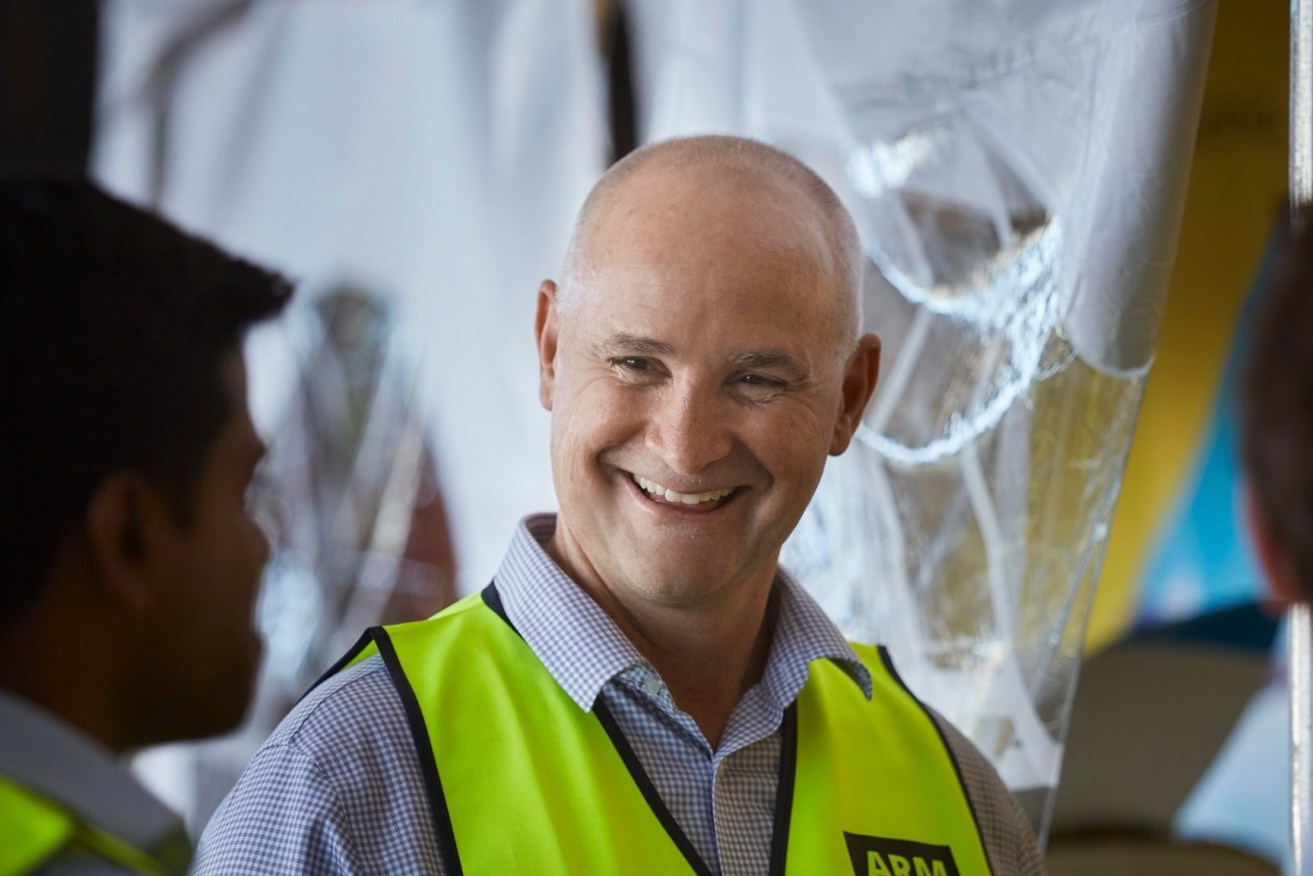Butchered: Minister sends ambitious Bradfield Scheme to watery grave
The Palaszczuk Government has sunk an ambitious water-security scheme 84 years after it was first conceived to drought-proof western Queensland.


Water Minister Glenn Butcher has killed off an 84 year old water plan that promised to drought-proof inland Queensland.
Instead, Water Minister Glenn Butcher has floated the concept of developing more regional water grids and storages closer to where rain falls, rather than entertain a bold early 20th century vision to divert large bodies of water from the tropical north to drier parts of western Queensland known as the Bradfield scheme.
Developed in 1938 by Queensland-born government engineer Dr John Bradfield, who also designed the Sydney Harbour Bridge and Story Bridge, which carries the ‘highway’ bearing his name, the scheme proposed diverting water from the Tully, Herbert and Burdekin rivers west.
For decades the scheme has received strong backing from different parts of the political spectrum as a major infrastructure investment to combat climate variability and drought-proof Queensland’s rural interior, providing more certainty for farmers and scope for development.
However, in response to a report commissioned by the Palaszczuk Government and headed by Professor Ross Garnaut, Butcher has declared the scheme “would not be feasible”.
“All the research shows there is not enough consistent water to support the Bradfield scheme, which was proposed more than 80 years ago,” Butcher said.
“The independent panel found that the scheme’s costs far exceed benefits, so they recommended exploring better options for using water to contribute to regional development.”
The expert panel’s report follows another report commissioned by the former Federal government and finalised by CSIRO this year which also concluded the scheme was “not economically viable”.
Garnaut said the expert panellists on his team, including former Queensland Farmers Federation CEO Dr Georgina Davis, considered the project from a 21st century perspective, and also took into account factors such as climate change, impacts on the Great Barrier Reef, native title and Aboriginal and Torres Strait Islander peoples’ cultural connections.
He said moving water long distances south and west for irrigation was not feasible and did not represent the best outcomes for communities using the state’s water resources.
“The panel concluded that the Bradfield Scheme and similar proposals fall at the first hurdle: there is not enough water available on a consistent basis to support them, while doing all of the other valuable things that water does in the relevant catchments,” Garnaut said.
“The idea of using the immense water resources of northern and central Queensland to promote regional development is sound.
“In today’s circumstances, using the water productively, closer to where it falls, will make a far bigger and more valuable contribution to regional development.”
Long-time Bradfield supporter Robbie Katter and his father, federal MP Bob Katter, say Butcher’s decision has “ripped the heart out of rural Queensland”.
The Katter’s Australian Party Leader and Traeger MP Robbie Katter called the Garnaut panel a “suicide squad” that had bowed to the government’s “dam-phobic” and “anti-development” agenda of cultural and climatic concerns.
“Show me a study that has been completed in the last 20 years that the government has commissioned that hasn’t fundamentally agreed with or supported their agenda,” he said.
“There is absolutely no question that the Palaszczuk Labor Governments agenda is to ‘stop all dams’, particularly in north Queensland. This report was never going to be contrary to this.”
Federal Member for Kennedy, Bob Katter, who has dedicated much of his personal and professional life to advancing Bradfield’s vision said the Garnaut report – like the work issued previously by CSIRO – was a farce.
“The calibre of the people who have declared their support to Bradfield include Prime Minister Malcolm Fraser, Premier Joh Bjelke-Petersen, Prime Minister Kevin Rudd and Premier Peter Beattie,” he said.
“The people who drew up the revised Bradfield Scheme have built more dams than any other group of people in Australian history – CSIRO, for example, has never built a single dam.
“The modern state of Queensland, that we all enjoy today, was created by two supporters of the Bradfield Scheme – Sir Leo Hielscher and Joh Bjelke-Petersen.
“They created the tourism industry out of nothing, they created the coal industry at a time when we were a net-importer of coal, they create the aluminium processing industry, they doubled our cattle numbers – these men were giants.”
The LNP Opposition’s water spokesperson Deb Frecklington said the government had never intended to develop the Bradfield Scheme and handled the report and its timing as a “political play thing”.
“They’ve held this report for the best part of an entire year and released it right before Christmas,” she said.
“Clearly, they have no respect for how important water security is to Queenslanders.”
The government’s rejection of the Bradfield Scheme also coincided with Butcher’s announcement that the wall of Burdekin Falls Dam – Queensland’s largest – would be raised another two metres, potentially providing 150,000 megalitres of new water allocations and adding to the 1.8 million megalitres the dam already holds.
Frecklington said the announced development was a restriction, not a raising.
“The people of north Queensland know only raising the dam wall by two metres is nowhere near sufficient and shows they lack vision and ability,” she said.
“It means the dam is severely hindered from being used as an option for hydroelectricity in the future which could have also been a vital energy source in the future.”












